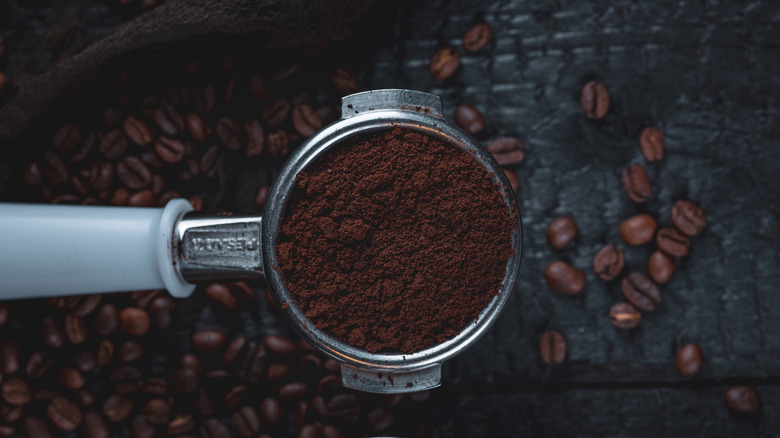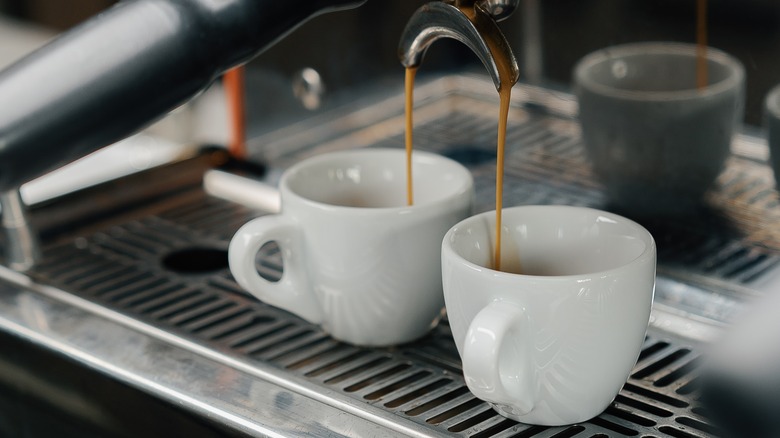The Possible Reason Your Freshly Ground Espresso Tastes Sour
Some of us could not live without our morning dose of coffee. In fact, many of us have systematically trained ourselves to rely on coffee for our jolt of energy and our productivity throughout the day. We all know someone, or perhaps we are the people, who need a morning cup of joe, a midday pick-me-up, and a post-dinner shot of espresso to help digest a heavy meal. Coffee is insurmountably tied to our daily routine, but despite its prevalence in western society today, espresso didn't truly become popularized until the early 20th century. According to Coffee Affection, it wasn't until the espresso machine became more accessible and widely produced in the 1900s that people truly began indulging in the beverage regularly. Shortly thereafter, the drink took off in Italy, and coffee bars and houses were built.
Espresso machines are only becoming more and more affordable, meaning that many coffee addicts are now buying their own coffee makers and pouring themselves a shot at home. However, some are learning that making a high-quality cup of espresso is more complex than they first imagined, and unfortunately, many of their drinks turn out sour and unappealing.
It's all in the grind
Espresso is made by grinding up coffee beans, weighing out the amount you need, tamping it in the portafilter, and pulling the shot with water heated to 197 degrees Fahrenheit to 205 degrees Fahrenheit (via Perfect Daily Grind). There are quite a handful of tips and tricks coffee connoisseurs like to use in order to pull the best, most flavorful expresso, but in order to keep your own cup from going sour, focus on the grind of your coffee.
In the study "Systematically Improving Espresso," researchers conclude that when coffee lovers grind their coffee too fine or too coarse, the extraction of flavor can be altered and have an impact on one's drinking experience (via Sciencedirect). Smithsonian Magazine claims that people tend to make the mistake of grinding their coffee too fine. By grinding the beans too small, the consistency of the grounds will be too dense and heavily packed in, hindering the water's journey through the beans and creating either a bitter or sour flavor.
To prevent this issue, Above Average Coffee recommends that when grinding your beans for espresso brewing, you must aim for your coffee particles to be 0.8 mm in size. Seeing as how coffee grounds can be hard to measure precisely at home, the site says to try setting your coffee grinder to the medium-fine setting and make personal adjustments from there.

